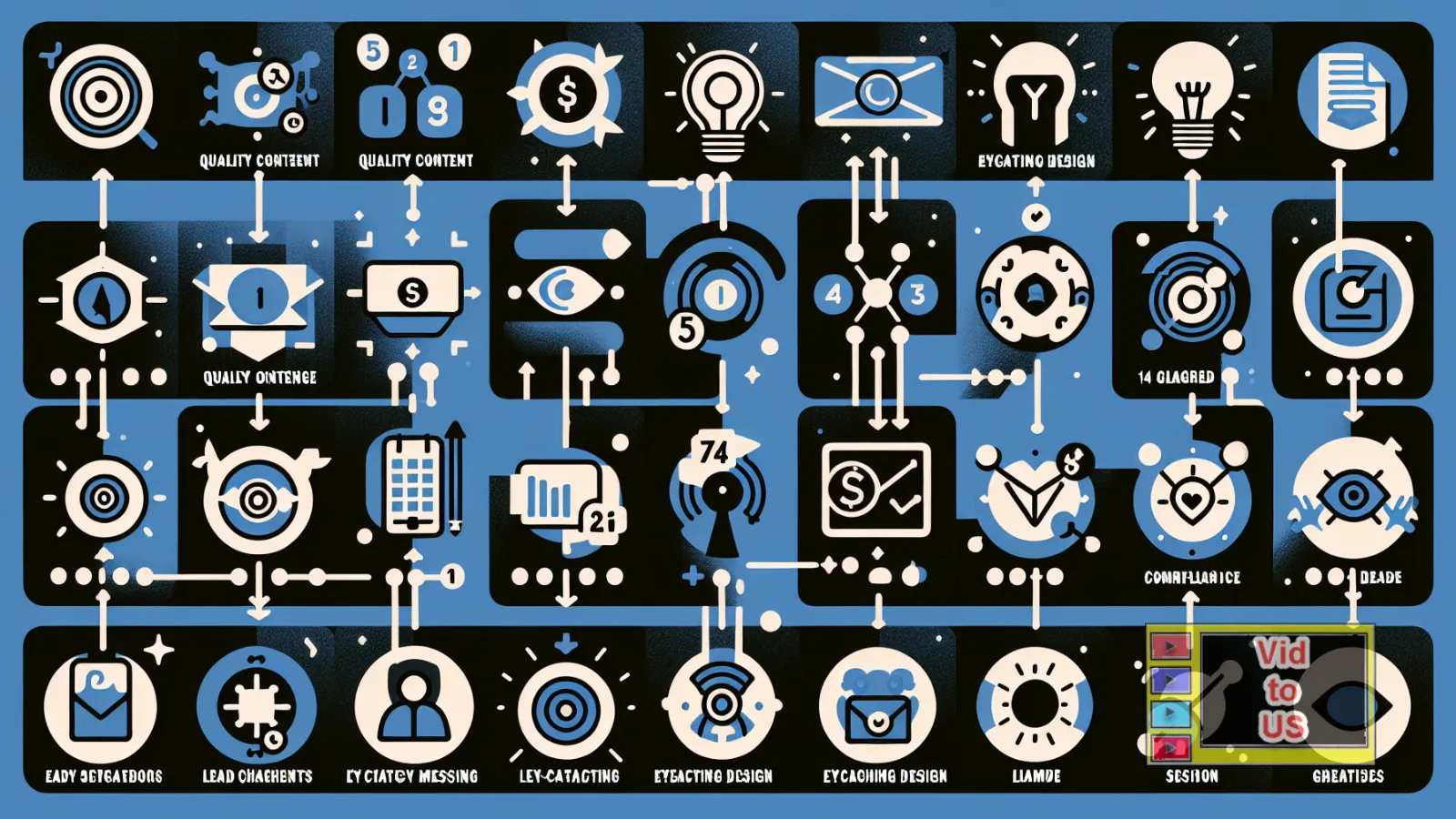
In the fast-paced world of sales, where every interaction could make or break a deal, the onboarding and training process for new sales reps is crucial.
Table of Contents Best Practices for Onboarding and Training Sales Reps
It sets the foundation for success and ensures that these frontline warriors are equipped with the essential skills to navigate the competitive landscape.
Imagine a scenario where your sales team is not only knowledgeable about your products or services but also adept at building strong relationships, negotiating effectively, and closing deals with finesse.
This article delves into the Best Practices for Onboarding and Training Sales Reps, offering insights and strategies to help organizations cultivate top-performing teams that drive revenue growth.
So, buckle up as we embark on a journey to discover how to transform raw talent into seasoned sales professionals ready to conquer any challenge that comes their way.
Set clear expectations from start
One crucial aspect of effectively onboarding and training sales representatives is to set clear expectations from the beginning.
This involves clearly defining the roles, responsibilities, and performance objectives that are expected of the sales team.
Providing a comprehensive overview of the company’s sales process, target market, products or services, and sales goals helps establish a solid foundation for the sales reps to understand what is expected of them.
Clear expectations also include establishing appropriate communication channels, performance metrics, and key performance indicators (KPIs) that will be used to assess their progress and success.
By setting clear expectations, sales representatives can have a clear understanding of their goals and responsibilities, which ultimately leads to improved performance and alignment with the organization’s objectives.
Sales representatives must be provided with clear expectations from the beginning. This includes defining their roles, responsibilities, and performance objectives.
A detailed overview of the company’s sales process, target market, products or services, and sales goals should be given to establish a strong foundation.
It is also important to establish effective communication channels, performance metrics, and key performance indicators (KPIs) for evaluating their progress and success.
Clear expectations help sales representatives understand their goals and responsibilities, leading to improved performance and alignment with the organization’s objectives.
Provide thorough product knowledge training
To ensure the success of sales reps, it is essential to provide thorough product knowledge training.
Sales representatives should have a deep understanding of the features, benefits, and value propositions of the products or services they are selling.
This includes knowledge of the product’s specifications, functionalities, pricing options, and any unique selling points.
By equipping sales reps with comprehensive product knowledge, they can confidently engage with potential customers, address their inquiries, and effectively communicate the value of the products.
Additionally, thorough product training enables sales reps to handle objections, highlight the product’s competitive advantages, and tailor their pitches to meet individual customer needs.
Regular product training sessions, both during the onboarding process and ongoing, should be provided to keep sales reps informed about any updates, new features, or changes in the product lineup.
This ensures that sales reps are well-equipped to represent and promote the products effectively, ultimately leading to increased sales and customer satisfaction.
Ensure that all sales representatives possess a thorough understanding of the product’s specifications, features, pricing options, and unique selling points.
Equipping sales reps with this knowledge enables them to engage confidently with potential customers, answering inquiries and effectively conveying the product’s value.
Comprehensive product training empowers reps to address objections, highlight competitive advantages, and tailor their pitches to meet individual customer needs.
Regular training sessions, both during onboarding and continuously afterward, should be conducted to keep sales reps updated on new features, product modifications, and any changes in the lineup.
This ensures that sales representatives are well-prepared to effectively promote and represent the products, ultimately leading to increased sales and enhanced customer satisfaction.
Role-play common sales scenarios
As part of a comprehensive onboarding and training program for sales reps, it is crucial to incorporate role- playing exercises that simulate common sales scenarios.
Role-playing allows sales reps to practice their pitch, overcome objections, and refine their communication skills in a controlled environment.
By simulating real-life interactions with potential customers, sales reps can gain confidence, improve their ability to think on their feet, and develop strategies for handling different situations.
Role-playing scenarios can include handling price negotiations, addressing customer concerns, upselling or cross-selling, and closing deals.
By providing regular opportunities for sales reps to engage in role-playing exercises, they can sharpen their sales techniques, become more adaptive to customer needs, and ultimately increase their success in converting prospects into satisfied customers.
Encourage continuous learning and development
To foster a culture of continuous learning and development among sales reps, it is important to provide ongoing training and resources beyond the initial onboarding process.
This can include access to industry articles, online courses, webinars, and workshops that focus on sales techniques, product knowledge, market trends, and customer behavior.
Encouraging sales reps to actively seek out new knowledge and skills not only enhances their capabilities but also keeps them motivated and engaged in their roles.
Additionally, implementing a mentorship or coaching program can pair experienced sales professionals with newer team members, allowing for knowledge sharing and personalized guidance.
By investing in the continuous learning and development of sales reps, companies can ensure that they remain competitive, adaptable, and equipped to meet the evolving needs of their customers.
To foster a culture of continuous learning and growth, it is essential to provide ongoing training and resources for sales representatives.
To foster a culture of continuous learning and development among sales reps, it’s important to provide ongoing training and resources beyond the initial onboarding process.
This can include access to industry articles, online courses, webinars, and workshops on sales techniques, product knowledge, market trends, and customer behavior.
Encouraging reps to actively seek out new knowledge and skills enhances their capabilities and maintains their motivation.
Implementing a mentorship or coaching program pairs experienced professionals with newer team members, facilitating knowledge sharing and personalized guidance.
Investing in sales reps’ continuous learning ensures competitiveness, adaptability, and the ability to meet changing customer needs.
Foster a supportive and collaborative environment
Creating a supportive and collaborative environment is crucial for the success of sales reps. It starts with promoting open communication and active listening among team members.
Encouraging regular team meetings and discussions where everyone has the opportunity to share ideas,
concerns, and best practices can foster a sense of belonging and collaboration.
Additionally, establishing clear goals and expectations, and providing constructive feedback and recognition for achievements, helps build a positive and supportive atmosphere.
Team-building activities and initiatives can also strengthen relationships and promote teamwork.
By cultivating a culture of support and collaboration, sales reps are more likely to feel valued, motivated, and empowered to work together towards shared goals and success.
In conclusion, implementing these best practices for onboarding and training sales reps is crucial for the success of any sales team.
By providing a structured and thorough onboarding process, along with ongoing training and support, companies can ensure that their sales reps are equipped with the knowledge and skills needed to excel in
their roles.
This not only leads to increased sales and revenue, but also builds a strong and confident sales team that will drive the company towards continued success.
As the saying goes, a well-trained sales team is a well-oiled machine.
So, invest in your sales reps’ development and see the positive impact it has on your business.
FAQ
What are the key components of a successful onboarding program for sales reps?
A successful onboarding program for sales reps should include clear expectations, comprehensive training on products and processes, ongoing support and feedback, access to resources and tools, mentorship or coaching, and a structured plan for continuous learning and development.
Effective communication, goal-setting, and integration into the company culture are also crucial components to ensure sales reps are equipped to succeed in their roles.
Regular check-ins, performance evaluations, and opportunities for advancement should be incorporated to drive motivation and engagement within the sales team.
Ultimately, a successful onboarding program should set sales reps up for long-term success and growth within the organization.
How can companies ensure that sales reps are effectively trained on product knowledge and sales techniques?
Companies can ensure sales reps are effectively trained on product knowledge and sales techniques by implementing comprehensive training programs that include a mix of classroom training, hands-on practice, role-playing exercises, and ongoing coaching and feedback.
Providing access to digital learning resources, regular product updates, and mentoring from experienced sales professionals can also enhance their skills.
Utilizing technology such as virtual reality simulations and analytics to track performance can further optimize training effectiveness.
Regular assessments and certifications can help monitor progress and ensure sales reps are fully equipped to drive sales success.
What role does ongoing coaching and feedback play in the development of sales reps?
Ongoing coaching and feedback are crucial in the development of sales reps as they provide continuous support, guidance, and motivation to improve their skills, performance, and results.
Regular feedback helps sales reps identify areas for improvement, set goals, and track progress, while coaching offers personalized training and development opportunities to enhance their sales techniques, product knowledge, and customer interactions.
This consistent support system enables sales reps to learn and grow, build confidence, and ultimately achieve greater success in their roles.
How can companies measure the effectiveness of their onboarding and training programs for sales reps?
Companies can measure the effectiveness of their onboarding and training programs for sales reps by tracking key performance indicators such as sales metrics (revenue generated, customer acquisition, conversion rates), employee retention rates, feedback from sales reps, and comparing the performance of newly onboarded reps to established benchmarks.
Conducting surveys and assessments to gauge the satisfaction and proficiency of sales reps post-training can also provide valuable insights.
Regularly reviewing and updating training materials based on these evaluations can help improve the effectiveness of onboarding and training programs for sales reps.
What are some common pitfalls to avoid when onboarding and training sales reps?
Some common pitfalls to avoid when onboarding and training sales reps include insufficient training materials, lack of ongoing support and feedback, overwhelming them with information, not customizing training to individual needs, and neglecting to monitor progress and provide opportunities for skill development.
It is important to establish clear goals, provide effective coaching and mentorship, encourage collaboration among team members, and create a positive and motivating work environment to ensure successful onboarding and training of sales reps.




